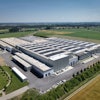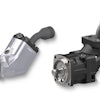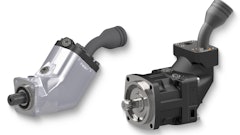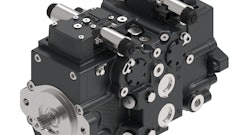
Fluid power technology has long been a fundamental force in mobile equipment applications, driving many processes across construction, agriculture, transportation and beyond. However, like any technology, it continues to evolve, adapting to meet the demands of modern industries. Engineers, industry leaders and decision-makers must understand these shifts to stay competitive in a market that relies on efficiency, customization and innovation.
Fluid power technologies have traditionally been the workhorses of heavy machinery. What began as simple systems to move loads with force has transformed into complex solutions engineered for precision, reliability and sustainability.
Industries today demand systems that maximize performance while minimizing operational costs, energy consumption, and environmental impact. This shift has challenged fluid power systems to adapt rapidly to unique requirements across sectors.
Customization Is Key
No two industries are alike, and the same can be said about their requirements for fluid power systems. The need for customized hydraulic systems has surged as businesses tackle increasingly specific challenges — whether it’s a more compact hydraulic cylinder for a tight machinery design or a system designed for extreme environmental conditions.
Custom solutions go beyond off-the-shelf products. They leverage tailored engineering processes from design to delivery. For example, some programs emphasize creating customer-focused designs that fit exact specifications. From exploring diverse materials for durability to incorporating advanced features like embedded sensors, customization ensures that solutions are not only fit for purpose, but also future proof.
Key Trends Shaping Hydraulic Component Design
Fluid power continues to benefit from innovative advancements. Today’s trends point to two significant focus areas — efficiency and digital transformation.
Digitization in Fluid Power
The industry is experiencing a shift toward smarter, more connected systems. Digitization in hydraulic technology has broadened the possibilities for engineers, leading to smarter controls, better data collection and automated operations. Key elements of digitization include:
- Integrated sensors — Embedded sensors in hydraulic systems now allow real-time monitoring of performance metrics, such as pressure, temperature and efficiency. These sensors provide actionable insights for maintenance, enabling predictive maintenance solutions and reducing unplanned downtime.
- Electro-hydraulic valves and controllers — Combining electronics with hydraulic systems has allowed greater control and precision. Electro-hydraulic valves and controllers improve system efficiency and simplify the implementation of intricate functions.
- Wireless connectivity — Wireless solutions are gaining traction, enabling seamless intra-machine connectivity and remote system controls. Engineers now have access to wireless diagnostics that improve efficiency and performance without physical intervention.
Efficiency and Sustainability
Efficiency is top of mind as industries seek to reduce energy usage and environmental impact. Several trends are driving this focus forward:
- Energy-saving systems — Solutions like regenerative hydraulic systems help industries conserve energy by recycling the power within hydraulic loops. This marks a notable shift toward environmentally conscious technology.
- Electric prime movers — An emerging trend is the incorporation of electric-powered drive systems in mobile machinery, either through direct-drive mechanisms or electric power take-off (ePTO) systems. While still in their infancy in mid-market applications, discussions around electric prime movers are gaining pace, hinting at upcoming breakthroughs.
Emerging Opportunities
The future of fluid power aligns with innovation in machine intelligence, driven by advancements in artificial intelligence (AI) and machine learning (ML). For instance, as mobile machinery gains intelligence through machine-learning algorithms and deterministic systems, businesses can optimize local maintenance and operational efficiency further. These tools promise to reshape operations, enhance system diagnostics, and even automate repair recommendations.
AI-based solutions are already making waves in predictive maintenance. By analyzing data from embedded sensors, AI systems can predict potential malfunctions, schedule needed repairs, and refine system design — all while reducing human error.
Wireless advancements within fluid power systems also pave the way for seamless integration with broader Industrial Internet of Things (IIoT) ecosystems. Engineers can now imagine entire fleets of hydraulic-driven machinery interconnected via IoT, exchanging data for synchronized and efficient operations.
For engineers and decision-makers, these trends present a unique opportunity to rethink how fluid power systems are designed and implemented. At the same time, they highlight the importance of leveraging expertise and resources from trusted industry sources.
Expert Support and Rapid Delivery
Navigating this wave of advancement requires guidance and reliable partnerships. Access to expert technical support equips professionals with custom design expertise, technical knowledge, and solutions integration. Additionally, rapid delivery — including fast shipping and reliable supply chain support — is critical, as businesses aim to reduce lead times and improve project workflows.
The evolution of fluid power technology is accelerating. Industry professionals must equip themselves with the knowledge and tools to adapt effectively to these changes. Custom solutions tailored to unique business challenges and the adoption of leading digital advancements provide pathways to success in this competitive landscape.
By keeping up with trends in digitization, efficiency, and emerging tech like AI, businesses can position themselves at the forefront of this innovation-driven revolution. With expert resources and a focus on tailored solutions, fluid power systems will continue to play a pivotal role in powering progress across industries.
















